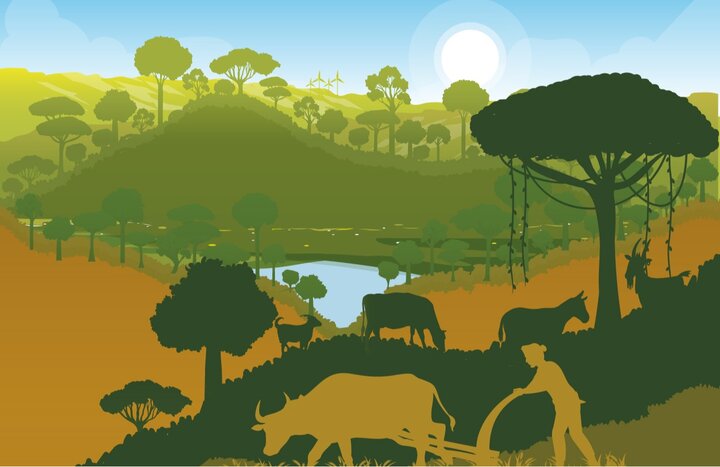The course was officially launched at a high-level event on Wednesday, 29 March 2023, with the participation of Dr. Abbas Ali Nobakht, Iranian Deputy Minister and Head of the Natural Resources and Watershed Management Organization.
The e-Learning platform is entitled “The Transforming Dryland Forests and Agrosilvopastoral Systems: An approach to sustain and develop food production in drylands under change”.
Spearheaded by the Committee on Forestry Working Group on Dryland Forests and Agrosilvopastoral Systems (COFO WG), the course was developed through the joint efforts and expertise of the Natural Resources and Watershed Management Organization of the Ministry of Agriculture Jahad of the Islamic Republic of Iran and 15 other partners.
“A business-as-usual approach is no longer an option for a food-secure future, but there is a huge gap between awareness and capacity to implement sustainable dryland management interventions,” said FAO Forestry Officer Fidaa F. Haddad. “This e-learning course focuses on agrosilvopastoral systems as a solution, utilising both dryland trees and livestock in a mutually beneficial system.”
“When correctly implemented, agrosilvopastoral systems can ensure the sustainability of food production and livelihoods in these regions, while alleviating poverty and reducing the risk of conflict and disasters,” continued Haddad.
Nobakht, in his opening remarks, introduced the joint project of “Rehabilitation of Forest Landscapes and Degraded Land” and presented a report of its achievements.
“It has been implemented in two provinces of Kerman and South Khorasan since 2011. In addition to focusing on the control of critical wind erosion hotspots through protection, restoration, and vegetation enhancement, through an innovative approach, it has also improved the economic and living conditions of the affected communities as one of the drivers of land degradation,” Nobakht explained.
He went on to note that a full package was implemented including promotional and vocational training, payment of facilities, creation of cooperative structures such as the formation of cooperatives, production and marketing chains, and the villagers as the rural development committees and local communities benefited from the direct advantages of natural resource services and the project inputs and afforestation initiatives.
Elsewhere in his remarks, Nobakht announced that the Ministry of Agriculture Jahad has developed a plan to plant one billion saplings over a 4-year period with the aim of combating desertification and reforestation through a participatory approach, highlighting the importance of environmental protection, combating desertification and land degradation in the country’s regulations.
“Currently, public participation in natural resources activities is on our agenda as a strategic goal and has been extended to many natural resources management plans,” he emphasized.
He further expressed readiness to share successful experiences of sustainable land management with other countries.
During the event, Dr. Vahid Jafarian and Dr. Mohsen Abdolhoseini shared Iran’s achievements and lessons learned through the Rehabilitation of Forest Landscapes and Degraded Land with Particular Attention to Saline Soils and Areas Prone to Wind Erosion Project (RFLDL) jointly implemented by FAO and government of Iran funded by the Global Environment Facility.
Transforming the management of dryland forests
The e-learning course is now available free on the FAO e-learning Academy platform. It targets programme and project managers, field practitioners, policymakers and anyone interested in the sustainable development of drylands.
Through five online lessons, the course will build the competencies needed to transform the way practitioners manage dryland forests, with a focus on increasing sustainability whilst retaining the benefits of other interventions. The course takes around five hours to complete and after a final test, participants will be awarded a certificate. It is accessible at the following link: Course: Transforming dryland forests and agrosilvopastoral systems (fao.org)

























Your Comment